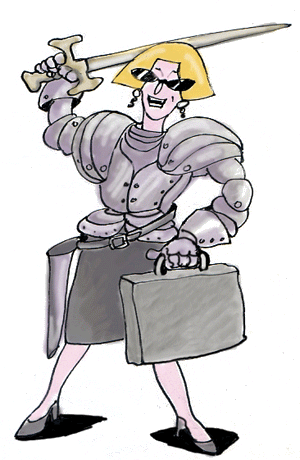Yuf detainees get rights
 Peach Melba •
Peach Melba •  Friday, May 26, 2017
Friday, May 26, 2017 When a child detention centre is really an adult prison ... VicSupremes not tricked by government slight of hand ... A moment in the sun for the Charter of Human Rights and Responsibilities ... Screws with weapons ... Judicial review ... Peach Melba on the case
 Administrative law enthusiasts in Victoria will be pleased with the VicSupremes' decision in a textbook judicial review case where the detention of juveniles in a maximum security adult prison was found to be unlawful under s.38(1) of the Victorian Charter of Human Rights and Responsibilities.
Administrative law enthusiasts in Victoria will be pleased with the VicSupremes' decision in a textbook judicial review case where the detention of juveniles in a maximum security adult prison was found to be unlawful under s.38(1) of the Victorian Charter of Human Rights and Responsibilities.
Following a riot at Parkville Youth Justice Precinct in 2016, the Grevillea Unit was set up inside Barwon Prison as a remand and youth justice centre for minors. Decisions to transfer children to a different site of detention are made under the Children, Youth and Families Act.
An "unknown number of children" were moved from the damaged Parkville centre to Grevillea in November 2016. In late December, Justice Gregory Garde made a declaration that the government's conduct amounted to jurisdictional error on two counts: acting for an improper purpose and failing to take into account relevant considerations bearing upon the exercise of power under the Act.
The statute stipulates that a child who is detained is entitled to have his or her physical, social, emotional, intellectual, cultural and spiritual needs catered for. Justice Garde held that the minister had failed to consider whether Grevillea suitably met this condition and other statutorily-imposed rights of detainees.
In addition, the decision to transfer the children to Barwon Prison was unlawful because there had been a failure to give proper considerations to the human rights considerations of the Victorian Charter of Human Rights and Responsibilities.
The Supreme Court has to tread a fine line in such cases, as it has no jurisdiction to make a finding on the merits of detaining children in an adult prison. The VicSupremes are restricted to examining whether the relevant decision-makers exercised their powers lawfully.
Of course, Justice Garde's finding that the human rights of the children had not been considered speaks for itself when it comes to the appropriateness of the government's decision to detain children in a physical space intended for adult offenders.
However, the judge conceded to pragmatism and gave the government until December 28 to transfer the children to a facility that was in compliance with the Act, since at the time of judgment there was nowhere else for the children to go.
This is a case where the noble ideals of judicial review do not affect material change, since courts cannot conjure statute-compliant justice facilities.
The Court of Appeal upheld Garde's finding and ordered that the plaintiffs be transferred to a facility that was in line with the requirements in the Act.
Meanwhile, the Victorian government shimmied around the finding of unlawfulness with a piece of bureaucratic trickery. Relying on its power under s.478 of the Act, the government promptly rechristened the Grevillea Unit as a remand and youth justice centre.
Added to the mix was the government's decision on January 27 to allow Corrections Victoria staff to possess capsicum spray and extendable batons within the Grevillea Unit, an exemption to the Control of Weapons Act which prohibits these weapons.
However, on May 11, Justice John Dixon of the Supreme Court declared that a high security adult prison by any other name is still be a high security adult prison:
"I am concerned with decision making processes affecting the human rights of persons who are highly vulnerable by reason of their age and the fact of their incarceration."
The plaintiffs in this case were transferred to Grevillea between December 2016 and February 2017. Their submissions challenged the decision of the government to re-establish Grevillea as a youth justice centre. The plaintiffs argued two grounds: jurisdictional error for want of jurisdictional fact and breach of the Charter, which imposes obligations on public authorities to act consistently with human rights.
The court substantially found for the plaintiffs. Justice Dixon ruled that there was no jurisdictional error, however he treated the submissions on breaches of the Charter of Human Rights as free-standing causes of action.
This is innovative because s.39(1) of the Charter is interpreted as requiring that an aggrieved person claiming a breach must hitch that claim onto another non-Charter ground of unlawfulness. There is potential for appeal here.
The court heard evidence from detained children that they were confined to their cells for up to 23 hours a day. One expert described Grevillea's environment as "demoralising and dehumanising".
Under the Charter, children must be protected in their best interests, and all persons deprived of their liberty must be treated with humanity and dignity. In light of the evidence, Dixon found that there had been a breach of these provisions when the government granted the weapons exemption and legally excised the Grevillea Unit from Barwon Prison as a "youth justice facility".
He ordered that children no longer be detained at Grevillea. That statutory human rights considerations were so significant to a finding in favour of the plaintiffs in this case suggests that a similar bill of rights at the Commonwealth level would be most beneficial.
From Elif Sekercioglu
 Human rights
Human rights 









Reader Comments